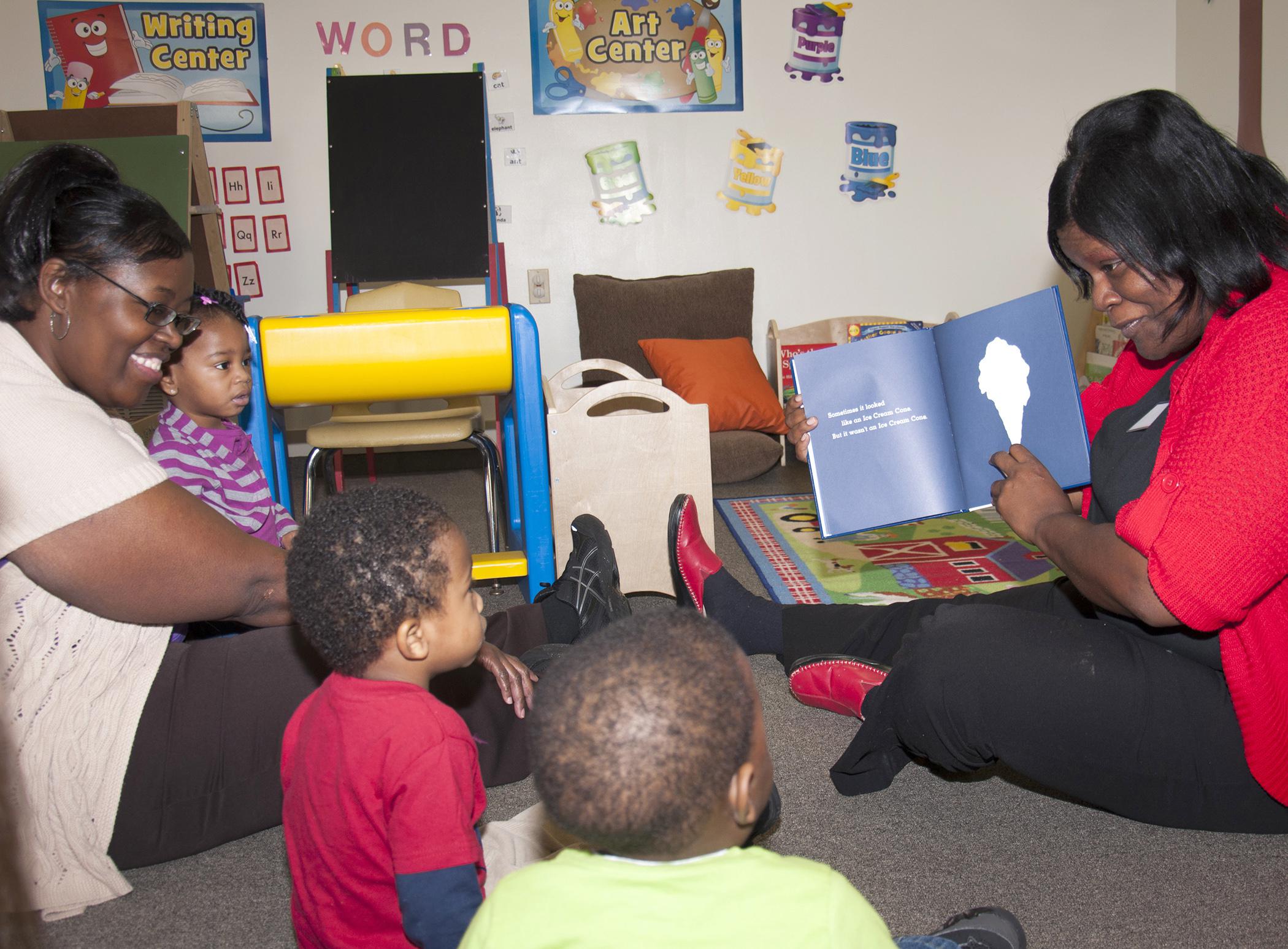Information Possibly Outdated
The information presented on this page was originally released on February 28, 2013. It may not be outdated, but please search our site for more current information. If you plan to quote or reference this information in a publication, please check with the Extension specialist or author before proceeding.
Professional development fills child care education need
By Alicia Barnes
MSU School of Human Sciences
MISSISSIPPI STATE – To prepare children for kindergarten and beyond, child care providers rely on professional development programs to ensure best practices.
With required background experience varying vastly, the early care and education fields attract everyone from stay-at-home parents seeking extra income to investors looking to license child care chains. To help establish a baseline for quality care, the Mississippi Child Care Resource and Referral Network, or MSCCR&R, recruits providers like Brenda Wright of Nesbit who want to give themselves a professional edge.
After having her marketing and sales position eliminated during the recession, Wright saw the economic downturn as a chance to reinvent herself.
“I had always wanted to work with children, and when my job phased out, it gave me the opportunity to make an impact in a child’s life,” Wright said.
With an associate’s degree in business, Wright already exceeded the state minimum requirements to provide child care. However, she wanted child development education before she became a provider. After attending an introduction to child care class, she opened a small in-home program and sought support from the Nurturing Homes Initiative, an MSCCR&R Network program for family child care providers.
Through the initiative, Wright enrolled to receive technical assistance and to participate in the in-home Quality Rating and Improvement System and Child Development Associate, or CDA, Credential programs.
For providers such as Wright who come to child care with limited experience, earning a CDA Credential is an ideal starting place to learn best practices, said Adrienne Mercer, CDA coordinator for the MSCCR&R Network.
“Parents should want a caregiver with at least a CDA because they can rest easy knowing their child’s caregiver has basic knowledge of child development and that their child’s caregiver has taken that extra step to learn how to nurture and care for children,” Mercer said.
As part of the Mississippi State University Extension Service, the MSCCR&R Network provides scholarships and other incentives to support the needs of the early care and education community.
Mississippi only requires child care providers be at least 18 years old and have either a high school or GED diploma to work in licensed settings. There is no education requirement for family in-home providers. To better equip themselves, hundreds of early care professionals enroll in CDA and other professional development programs.
CDA-enrolled providers have up to one year to complete the 120-hour credential. They must also attend training sessions, compile a resource file and pass a national exam.
“Our mentors work to help keep them on track and give them guidance when needed,” Mercer said.
For Wright, the network has given her the foundation she needs to educate future community leaders. With a notable three-star Quality Improvement and Rating System score, she credits the network for helping her business flourish and has now enrolled in the Mississippi Directors’ Credentialing Program.
“It has impacted my life and my child care program tremendously. It has given me a sense of direction. I changed my career, and this was all new to me,” Wright said. “When I have questions, they are always there. The activities, ideas, curriculums and training that I have received from the staff have been very rewarding.”
Nurturing Homes Initiative field technical assistant LaLetrice Fletcher said the network’s professional development impacts both child care providers and families.
“We help parents have a good feeling about what type of setting their children are in each day,” Fletcher said. “The programs make the provider feel confident that they are trying to set the stage for quality childcare. This gives child care providers and parents reassurance that they are not just keeping children, but that they are providing great care to the children.”
Parents like Coy Johnson appreciate having providers committed to education.
“I personally commend Mrs. Wright for taking the initiative to better herself with the knowledge of child care and development,” Johnson said. “It makes me feel better that my children are learning and not just being babysat.”
Louise E. Davis, an Extension professor and director of the MSCCR&R Network, explained that such professional development opportunities are vital for early care and education providers.
“A more educated workforce equals better outcomes for children,” Davis said. “Learning needs to be a lifelong goal for anyone, especially those who work with children daily. There is always new research and activities that need to be implemented.”
With the goal of promoting early childhood care and education, the MSCCR&R Network offers technical assistance, training sessions, and various credentialing such as the CDA Credential, the Mississippi Director’s Credential and National Director’s Credential. The network provides the CDA through the Council for Professional Recognition, which is based in Washington D.C.
The MSCCR&R Network receives funding through the Mississippi Department of Human Services, Division of Early Childhood Care and Development. Program information is available by calling 1-886-706-8827 or by visiting www.childcaremississippi.org.




